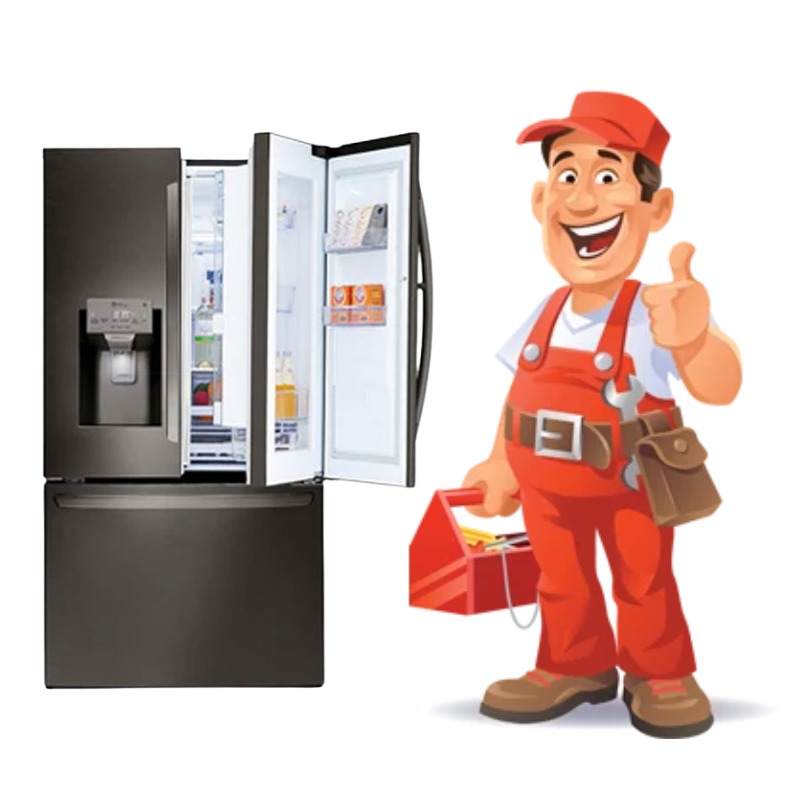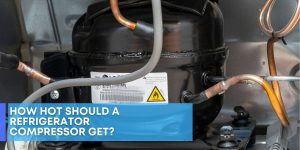If your refrigerator doesn’t work, there are a few things you can do to try and fix it. First, see if the power is still going to the fridge by checking to see if there’s a fuse or breaker that’s blown. If the power is still going in, then the problem may be with the refrigerator itself. You can try taking it apart and fixing any broken parts, or you can call a technician to come and take a look at it.
How Can I Fix My Refrigerator?
If you are experiencing problems with your refrigerator, there are a few things that you can do to try and fix the issue. The most common problems that people experience with their refrigerators are ice build-up on the coils, motors not spinning properly, and condensation forming inside the fridge.
The first thing that you should do if you are experiencing trouble with your refrigerator is to check to see if there is any ice build-up on the coils. If there is ice build-up, then you will need to take some time to clean the coils. This can be done by using a wire brush or an electric drill with a bit sized for drilling holes in metal. Once the coils have been cleaned, it is important to make sure that they are properly lubricated so that they do not freeze up again.
If the problem persists after cleaning and lubricating the coils, then it may be necessary to replace the refrigerator’s motor. This can be done by calling a qualified technician who will be able to help you remove and replace the motor. In some cases, it may also be necessary to replace the entire refrigerator unit.
If all of these measures fail to solve the problem, then it might be necessary to call a professional in order to diagnose and repair the issue.
Cleaning a refrigerator can be a chore, but it’s one that needs to be done regularly in order to keep the food inside safe to eat.
Follow these simple steps to clean your refrigerator:
- If your refrigerator has shelves, remove all of the food and clean the shelves with a dishwashing detergent solution and warm water. Be sure to rinse off the dishwashing detergent solution and dry the shelves.
- If your refrigerator doesn’t have shelves, wipe down the interior surfaces with a cloth dampened with cool water and mild dishwashing detergent. Be sure to rinse off all of the detergent residue before drying.
- If your refrigerator has coils, use a coil brush to remove any built-up debris or dust. Make sure to replace the coil brush every six months or when it becomes worn out.
- If your refrigerator has a water and ice dispenser, remove the ice and water containers and clean them using cool water and dishwashing detergent. Be sure to rinse off all of the detergent residue before dry.
- If your refrigerator has a filter, replace it every six months or when it becomes dirty.
What Are The Risks Of Not Repairing My Refrigerator?
If your refrigerator breaks, don’t just put off fixing it until it’s too late. There are many risks associated with not repairing your appliance, including higher energy bills, more freezer burn, and food spoilage.
A damaged or failing refrigerator can lead to higher energy bills. The National Association of Home Builders reports that a typical home uses an average of 1,500 kWh of electricity each month—an amount that can easily increase if a fridge is not properly maintained. If you have an older model refrigerator, replacing the entire unit may be cheaper than paying for repairs or replacements down the road.
Freezer burn is another common problem with refrigerators. When food spends too much time in the freezer, it can become freezer burn. This means that the inside of the freezer is covered in ice crystals and has lost its moisture content. Freezer burn can make food in the fridge go bad more quickly, and it’s also harmful to your appliances since it leads to corrosion.
Finally, food spoilage is another big risk when it comes to refrigerator repair. Leaks and cracks in your appliance allow moisture and bacteria to get inside and cause food spoilage. Spoiled food isn’t only unsightly; it can also make you sick if eaten by someone who isn’t accustomed to eating spoiled food. If you think something might be wrong with your refrigerator, don’t wait; take action now so you don’t have any unpleasant surprises later on!
There are a few different ways to fix a refrigerator. If the fridge is only making weird noises, you can try to clean out the filters. You can also try to lubricate the moving parts with oil or WD-40. If the fridge is not cooling or freezing properly, you might need to replace the compressor.
What Should I Do If My Refrigerator Won’t Start?
If your refrigerator won’t start, there are a few things you can do. First, check the power cord. Make sure it’s plugged in and has adequate voltage. If the power is fine, try resetting the refrigerator by unplugging it for five minutes and then plugging it back in. If that doesn’t work, remove the side panel of the refrigerator and try to find the problem. Check the coils for leaks or corrosion (paint might be corroding). Replace any parts that need to be replaced. Finally, if all else fails, you might have to call a professional.
What Should I Do If My Refrigerator Is Leaking Water Or Food?
If you notice water or food leaking from your refrigerator, there are a few things you can do to try and fix the issue. First, make sure the seals around the refrigerator door are in good condition. If they’re not, you may need to replace them. Second, check for any water leaks coming from the joints between the fridge and wall, as these can often be undetected. Finally, if all else fails and your refrigerator is still leaking, it may be time to call a professional.
How Can I Tell If My Refrigerator Needs To Be Replaced?
If your refrigerator is not cooling or freezing the food that you put in it, then it may need to be replaced. The most common problem with refrigerators is a broken ice maker. If the ice maker is not producing enough ice, then the water will not cool the food. Other problems can include a leaky condenser, a blockage in the fan motor, and a bad compressor. If you are not sure if your refrigerator needs to be replaced, then it is best to take it in for repair.
If you’re like most people, your refrigerator is one of your most relied on appliances. But just like anything else, it can start to malfunction from time to time. In this article, we’ll discuss some common issues and how you can repair them yourself. Whether it’s a freezer that won’t defrost or a fridge that isn’t cooling properly, fixing things on your own will save you a lot of money in the long run. So read on and learn how to fix common refrigerator problems!





















